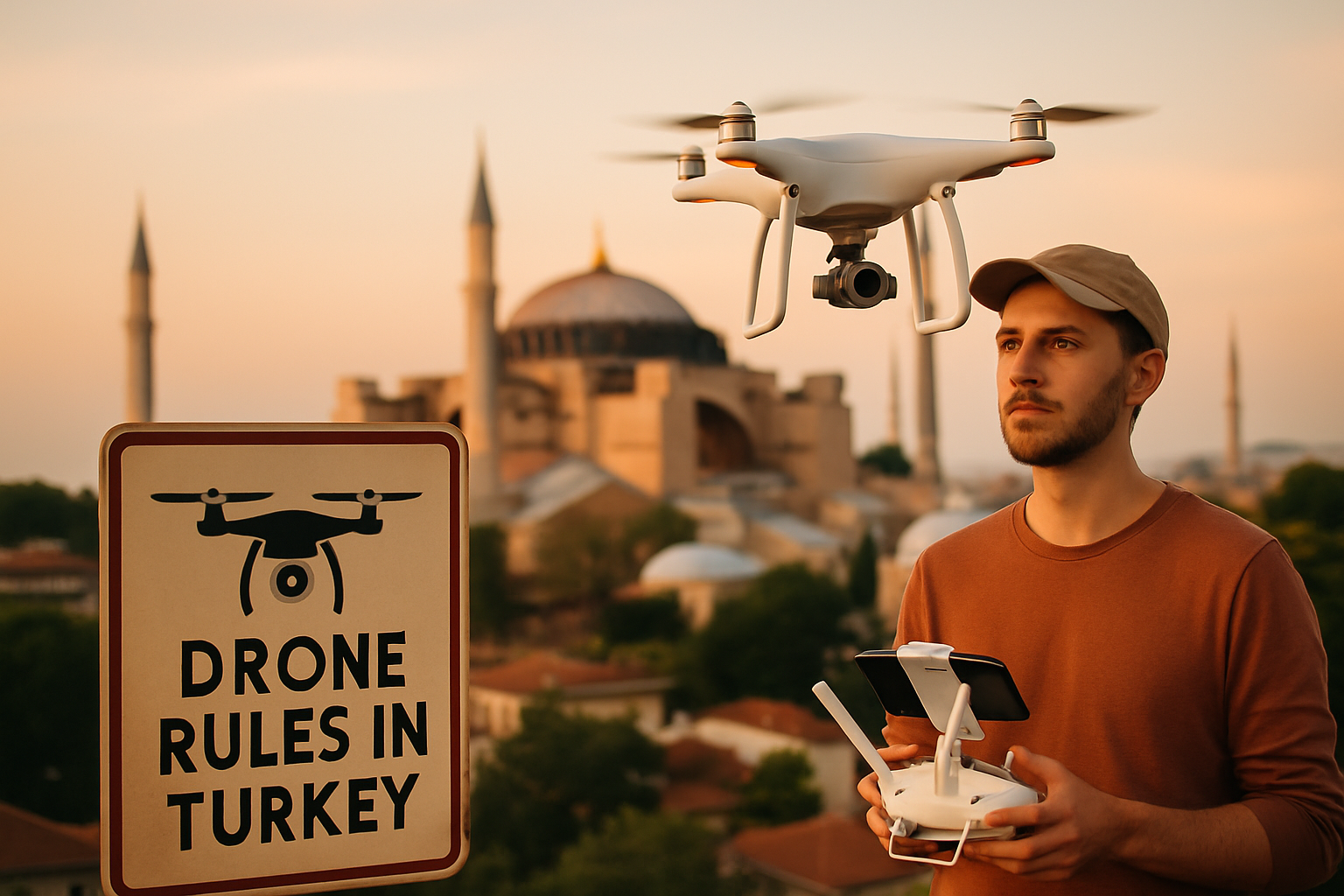Drone Usage Regulations: Flying Legally in Turkey

Living as an expat in Turkey offers countless opportunities, but it also comes with its share of challenges. Among these is understanding and following the country’s technology-driven rules, especially when embracing new hobbies. Many expats today use drones to capture Turkey’s breathtaking coastal landscapes, bustling cities, and ancient ruins. While it’s tempting to launch a camera drone anywhere for that perfect shot, respecting Turkish drone regulations is vital. Ignoring these laws can lead to hefty fines or even legal consequences. Here’s what every expat needs to know about flying drones safely and legally in Turkey.
Registering Your Drone: What’s Required?
Before you even think about taking your drone out of its box, Turkish law requires pilots to register their devices with the Directorate General of Civil Aviation (SHGM) if they weigh over 500 grams. Registration ensures accountability and keeps Turkish airspace organized.
The process is straightforward:
- Create an account on the SHGM UAV Registration system (available online).
- Provide a copy of your residence permit (ikamet) and passport, along with your Turkish phone number.
- Enter detailed information about your drone, including serial numbers and specs.
- Receive your registration certificate and keep a digital or paper copy whenever you fly.
Benefit: Registration creates peace of mind for travelers who want to explore aerial photography without unexpected interruptions.
For instance, David, an expat in Antalya, registered his mid-sized drone within a week and can now take stunning videos of Lara Beach and the old town, knowing he’s flying within the law.
Where Can You Fly?
Turkey’s drone laws protect sensitive sites, public safety, and privacy. Certain locations are strictly off-limits, while others require approval. Understanding flight zones maximizes your travel experiences without crossing any lines.
Prohibited zones include:
- Military bases and facilities
- Airports and approach paths
- Government buildings, embassies, and police stations
- Crowded public events and demonstrations
- National parks (without explicit permission)
Tip: Always check the SHGM’s online map for real-time flight zones and no-fly areas before launching.
Many expats enjoy flying in open rural zones or along the quieter stretches of coast. For example, Anna, based in Fethiye, checks the official map before each outing and has mapped dozens of new hiking trails using her drone.
Do You Need a Pilot Certificate?
Anyone operating a drone weighing over 500 grams in Turkey must obtain a pilot certificate. This certificate demonstrates you understand essential safety procedures, local restrictions, and how to respond if problems arise.
Certification process involves:
- Attending an online training course through the SHGM platform
- Completing a basic knowledge exam
- Receiving your electronic pilot certificate (valid throughout Turkey)
Holding a certificate pays off in many ways. It allows you to capture iconic views—like the hot air balloons over Cappadocia or the fortress-dotted Black Sea coast—without risking fines or equipment confiscation. Certified pilot Maria says the process was clear and gave her confidence, especially during busy tourist season flights.
How to Stay Updated: Ongoing Responsibilities
Drone laws keep evolving as technology changes. Turkish authorities periodically update regulations and adjust flight zones based on current events or threats. It’s your duty to stay informed.
Key steps include:
- Check the SHGM website and mobile app regularly for new announcements
- Join online expat forums and social media groups for the latest experiences and warnings
- Subscribe to newsletters from local drone clubs or aviation authorities
Staying updated helps you avoid unintended violations and provides peace of mind as you explore Turkey’s stunning vistas. Expats who stay proactive rarely face problems and often discover the best new flight spots first.
Responsible Flying: Tips for Safe and Respectful Use
Enjoying drone photography in Turkey means respecting both the law and your surroundings. Common-sense etiquette builds a positive reputation for the expat community.
Smart practices include:
- Always keep visual line of sight with your drone
- Respect the privacy of locals and avoid hovering over private property
- Avoid flying in high winds or bad weather
- Use return-to-home functions for safe recovery
- Keep insurance up to date to protect against loss or accidents
By following these simple rules, you ensure smoother flights, stunning footage, and friendly interactions with local authorities and neighbors. Fellow expats will appreciate your consideration—as will the next visitor eager to experience Turkey from above.
Understanding drone regulations is an important modern skill for expats in Turkey. Register your drone, fly only in approved areas, obtain the necessary pilot certificate, and always stay current with new regulations. Responsible drone use means endless discovery—without hassle.
